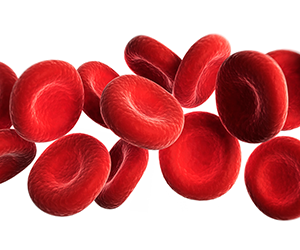NIH Awards $1.5M for Finger Blood Test of FVIII, Hemlibra Levels

The National Institutes of Health (NIH) awarded the DNA Medicine Institute (DMI) a $1.5 million grant to advance a quick and easy way of monitoring factor VIII (FVIII) and Hemlibra (emicizumab) blood levels in people with hemophilia A, especially those in developing countries.
DMI, an affiliate of rHEALTH, is developing a device that analyzes a blood sample taken by finger prick within 15 minutes. The company has won multiple XPrizes, given by a foundation to promote sustainable innovation, for the technology used in this test.
The device prepares and analyzes a blood sample in microfluidic channels and sends results to an app via Bluetooth. These can be shared directly with a patient’s healthcare provider, reducing the need for in-person visits.
“The rHEALTH point-of-care technology has the potential to impact the diagnosis and monitoring of hemophilia A worldwide,” Alain Baumann, CEO of the World Federation of Hemophilia (WFH), a collaborator on the project, said in a press release.
People with hemophilia A have missing or defective FVIII, a blood coagulation protein. Hemlibra, a bispecific antibody co-marketed by Chugai Pharmaceuticals and Genentech (both part of the Roche group), mimics the action of FVIII by binding to both factor IX and factor X. This helps improve clotting and reduce blood loss in patients with inhibitors (neutralizing antibodies) against engineered FVIII, which can render such replacement treatments ineffective.
Hemlibra is approved in the U.S., Europe and elsewhere to treat children and adults with hemophilia A with and without inhibitors.
“An easy-to-use approach for monitoring FVIII and emicizumab [Hemlibra] will improve patient care through widening availability of testing, which is today complex and hospital-based,” said Glenn Pierce, MD, PhD, vice president of medical of WFH.
The WFH is working to make Hemlibra available throughout the developing world as part of its Humanitarian Aid Program, with the assistance of Roche and its subsidiaries.
Boston Children’s Hospital (BCH) is also collaborating with rHEALTH to advance and study the device in developing countries. Limited access to testing instruments and materials, sparse medical facilities, and the expenses of long-term care are frequent barriers to hemophilia diagnosis and management throughout such countries.
BCH routinely treats people with hemophilia A and is interested in measuring the new device’s performance against its own lab analyzers, with the goal of making testing more accessible for patients.
The NIH’s Direct-to-Phase 2 grants are meant to stimulate technological development in small businesses.
“We are intent on advancing testing for hemophilia patients, who deserve an easy-to-use technology for managing their condition,” added Eugene Chan MD, CEO of rHEALTH.






